Forgot To Buy Eggs? Try Baking With These Pantry Swaps Instead
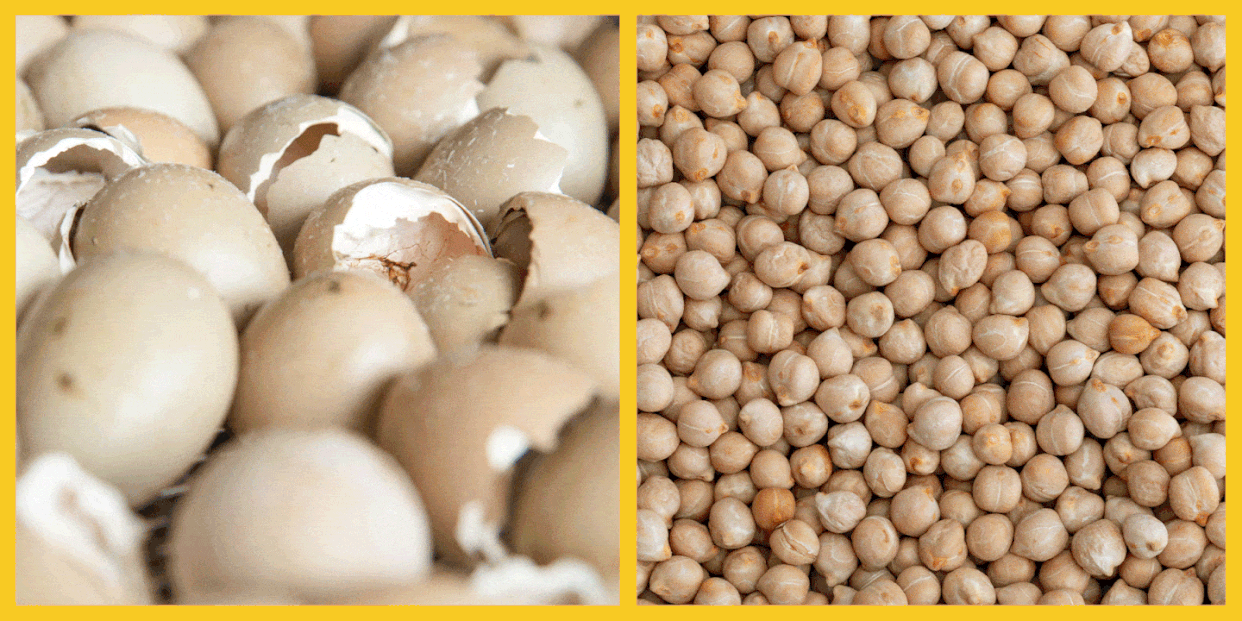
We've all been there: you're in the kitchen ready to whip up a delicious batch of cookies. You go to pull out the ingredients and alas, you're out of eggs. Or maybe you're baking for someone with dietary restrictions or an egg allergy.
While it might seem straightforward to swap ingredients for what you have on hand—like maple syrup instead of vanilla extract in a pinch—substituting eggs requires extra thought. According to professional baker and blogger Mimi Council, you need to decipher what role eggs play in an original recipe before you make the switch.
"Before we bake without eggs, we need to know what eggs bring to baked goods so they can be properly replaced," Council writes in her book Effortless Eggless Baking. "It's all about replacing the eggs with something that can act in a similar way."
Eggs contribute to the moisture, leavening, and texture in most pastries. Since baking is a science, trying to figure out how to make cakes, cookies, and pies without eggs can be especially difficult. Luckily, we're here to demystify some of the most common egg substitutes that will help you make your favorite desserts.
Unsweetened Applesauce
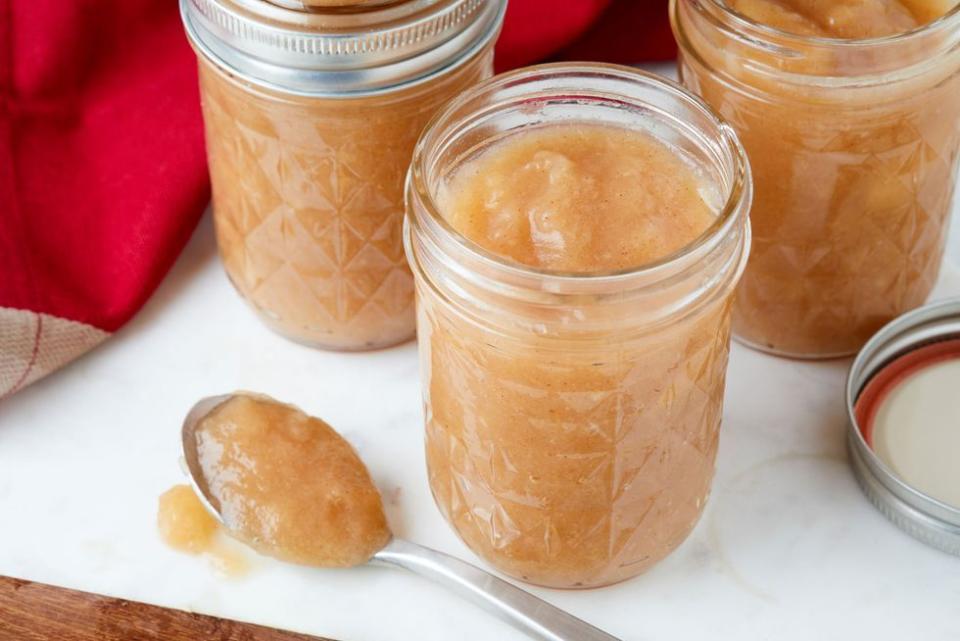
You can use a quarter-cup unsweetened applesauce for one egg. It adds a delicate sweetness, moisture, and even a bit of binding power from the fruit's natural pectin. Because it's more dense than an egg is, it might change the texture of your baked goods. Some people supplement this swap with a teaspoon of baking powder to encourage more fluffiness. In her cookbook, Council uses applesauce instead of eggs in cakes, muffins, and cookies.
Mashed Banana
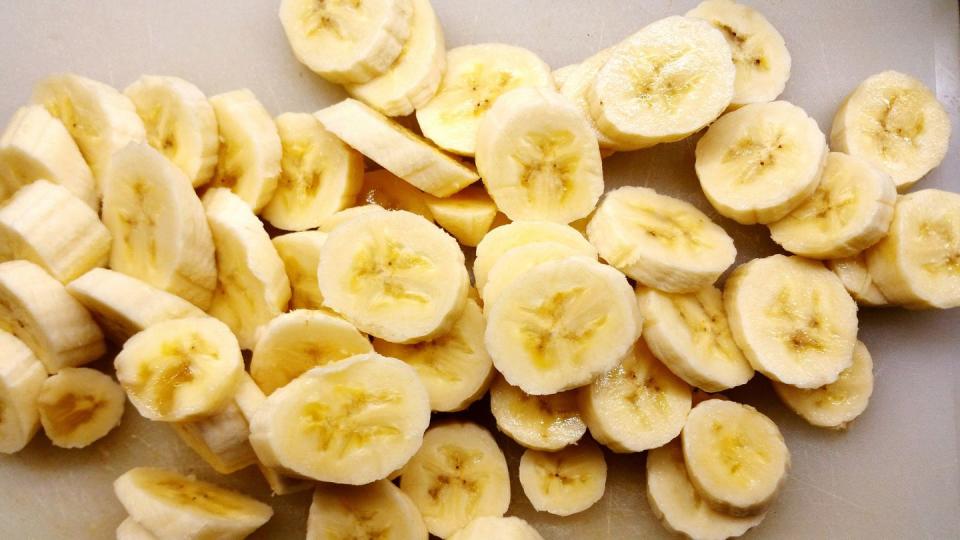
You can swap in a ripe medium mashed banana for every large egg, but this substitution doesn't work for every recipe. Bananas have plenty of starches and sugars that help your baked goods develop a beautiful golden brown crust. However, the flavor is too distinct to work for certain recipes. It can also incorporate lots of moisture, which isn't ideal if you're looking for fluffiness. Bananas work wonderfully in pancakes, brownies, and banana bread (obviously).
Aquafaba
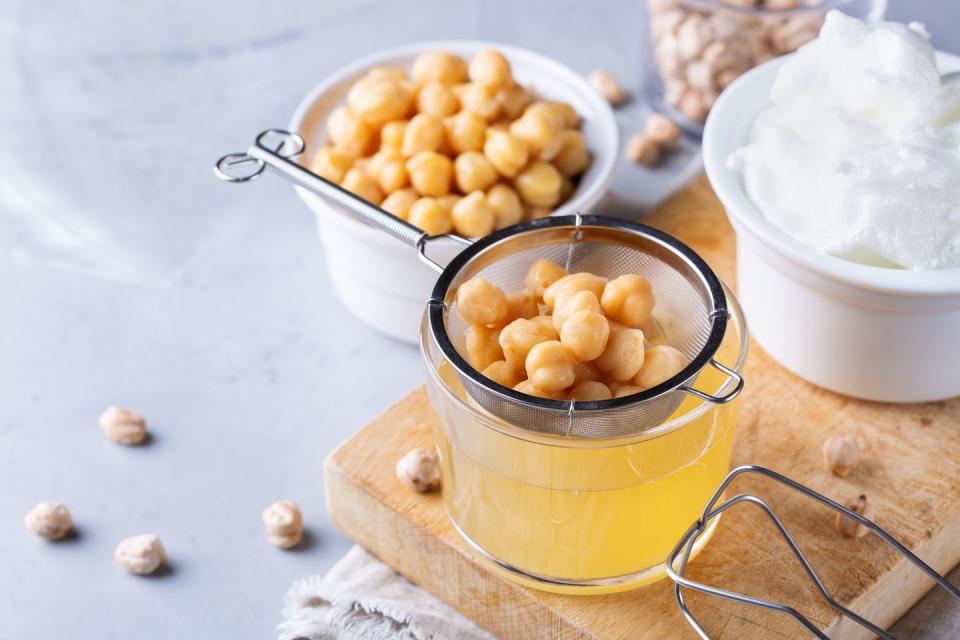
You may not be familiar with this ingredient, but it's probably already hanging out in your pantry. Aquafaba is the name for the liquid inside your can of chickpeas. You can use three tablespoons for every egg in many recipes to serve as a binding agent that gives your desserts structure. It can also be used in place of egg whites, because you can easily whip them up into a fluffy consistency. Pro tip: you can also use aquafaba to make vegan versions of your favorite foamy cocktails like Pisco Sours.
Flax Seeds
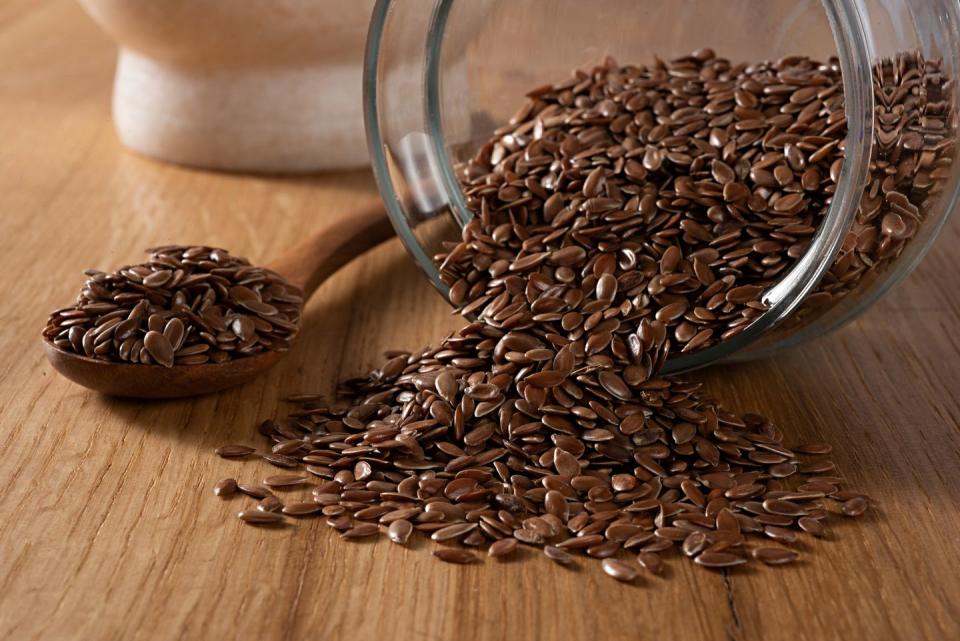
Known adorably as a "flegg," a flaxseed mixture is a great egg substitute. Simple combine one tablespoon of ground flax seeds with three tablespoons of water for every large egg you need. Then, after roughly 20 minutes, the mixture gelatinizes into a slimy, vegan version of an egg.
While it's definitely a cool science experiment, flax seeds are famously finicky in baking recipes. Depending on how old the flax seeds are, how coarsely they're ground, and how long they sit in water, their binding power can vary in your desserts. To avoid a kitchen disaster, we recommend using flax eggs in recipes that don't require many eggs to begin with (like pancakes or cookies).
Chia Seeds
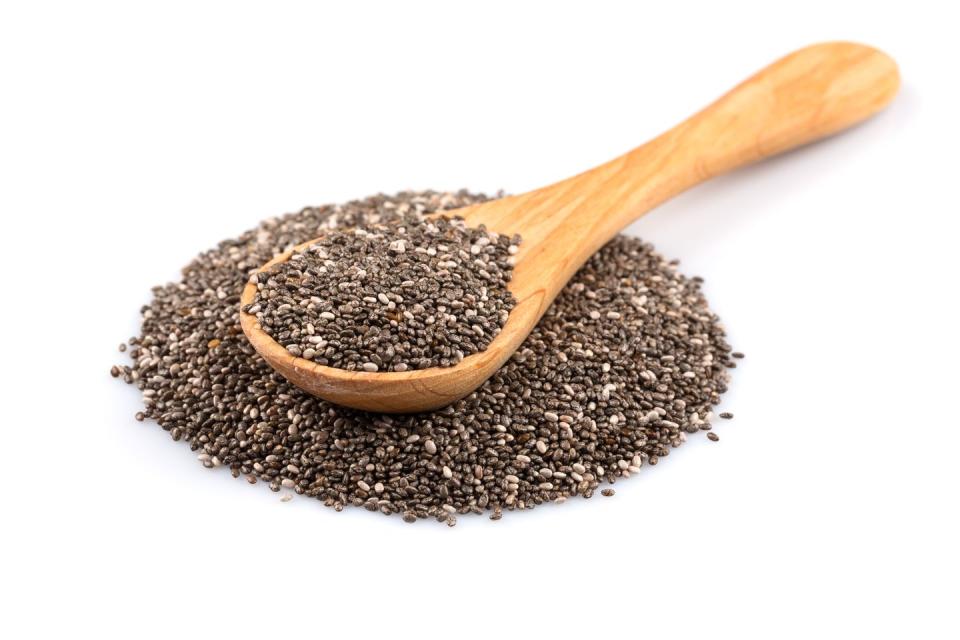
Chia seeds are similar to flax seeds and use the same ratio (one tablespoon of seeds for every three tablespoons of water). If you've ever grown a Chia Pet, you know how slimy and thick these superfood seeds can become. Chia seeds can bind food together when baking just like an egg can. But, like a flax egg, it's recommended to use them in recipes that call for only one or two eggs.
Silken Tofu
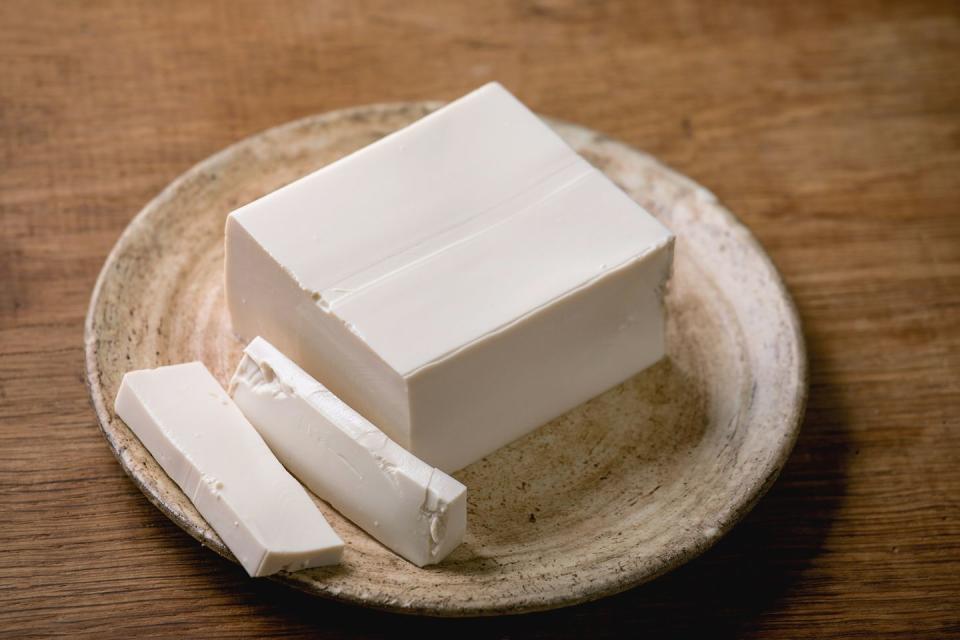
If you've never had silken tofu before, you're missing out. Beyond being the jiggly, melt-in-your-mouth base for dishes like Korean soft tofu stew and Mapo tofu, silken tofu is an excellent stand-in for eggs. Its creamy, dense texture is perfect for adding moisture to your baked goods, especially brownies. You can also use it to make homemade vegan mayonnaise—just blend it up with some neutral oil for a creamy spread.
Baking Soda And Vinegar
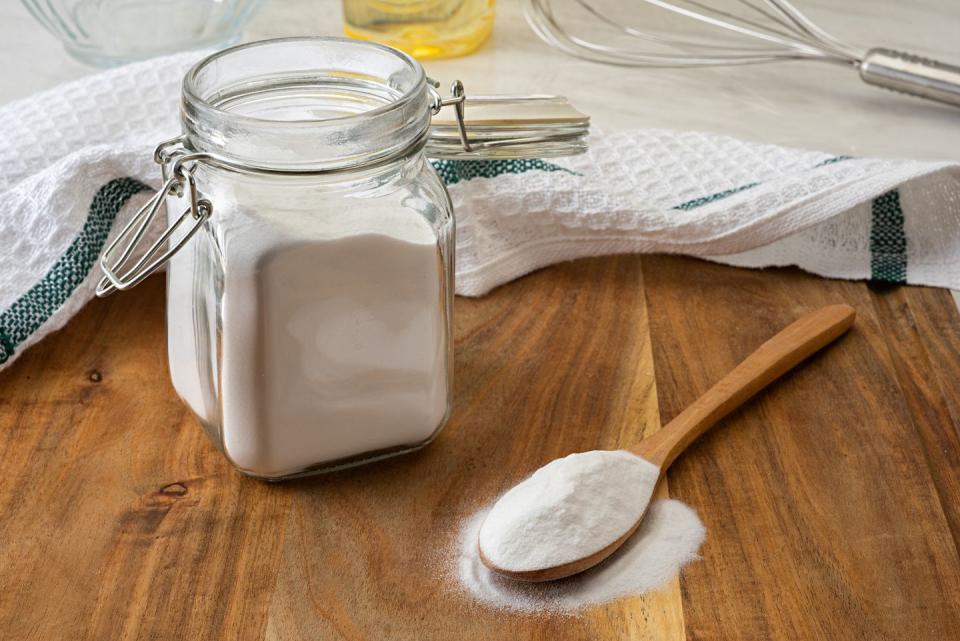
One of the most important roles an egg may play when baking is adding fluffiness. Creaming it separately with butter and sugar incorporates air and makes your pastries soft and light. When some egg substitutes can't achieve that same effect, it's time to turn to an age-old science-class trick. Mix a teaspoon of baking soda and a tablespoon of white vinegar together, then add to pancakes, cookies, and quick breads to create plenty of air bubbles. We wouldn't recommend using it in recipes that call for more than 2 eggs, since the vinegar flavor can overpower the rest of the ingredients.
Yogurt & Sour Cream
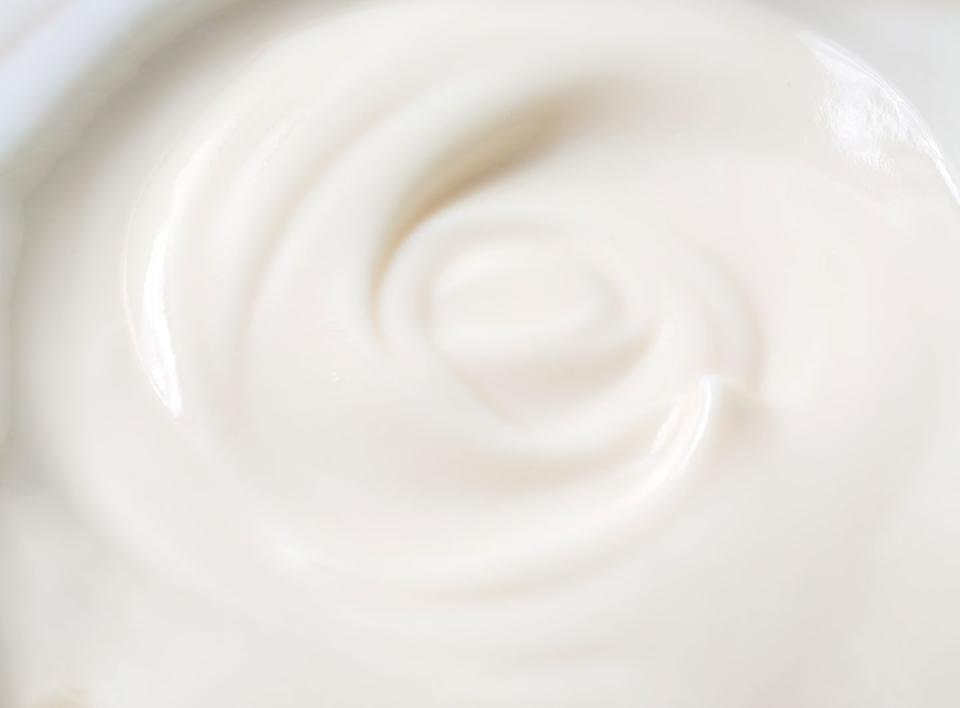
Tangy dairy products like yogurt and sour cream are a great swap when making egg-free desserts. As long as you make sure you're using full-fat varieties, these ingredients can incorporate lots of moisture to your recipes. In addition, the lactic acid that comes with the fermentation process helps to break down the gluten from the flour and makes your cakes more tender. You can even use one of the wide variety of non-dairy yogurts that have hit the market in the past few years. All you need to do is incorporate a quarter cup of plain yogurt to replace one egg.
Heavy Cream
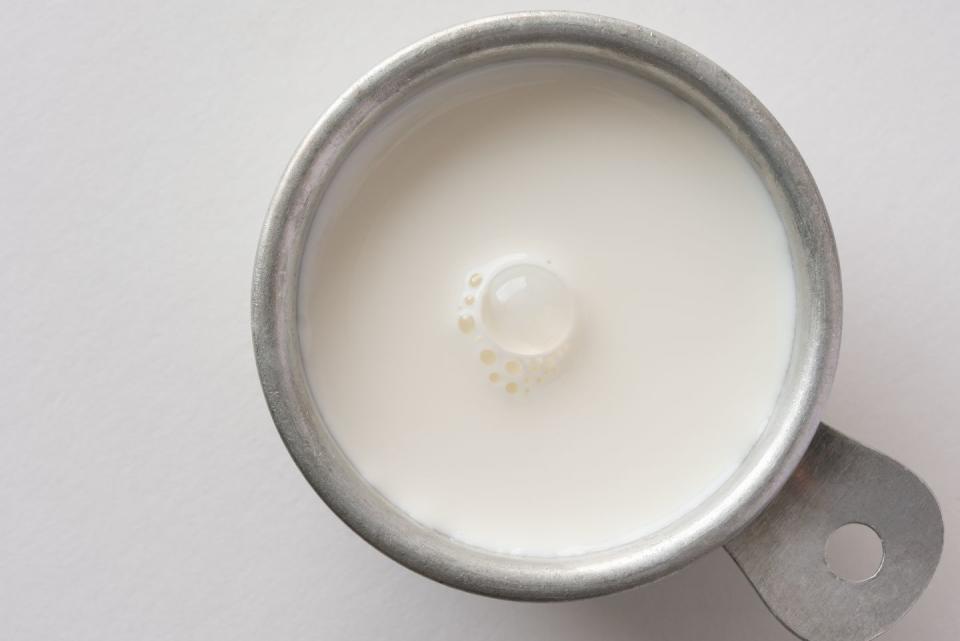
The high fat content of heavy cream makes for a good swap when baking without eggs. It adds plenty of moisture and a rich, creaminess to things like cakes or quick breads. Beyond that, it can also be used as an egg wash, according to Council. If you're looking to make it dairy-free, you can use full-fat coconut cream instead.
You Might Also Like
